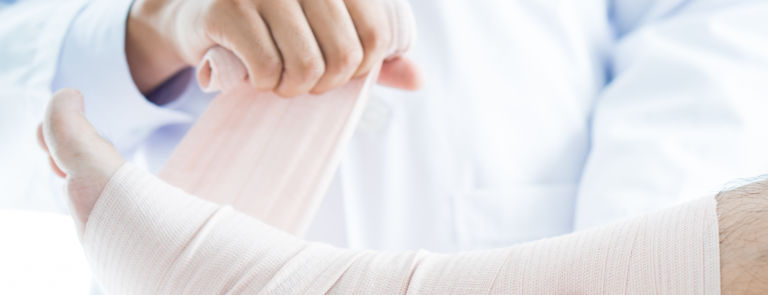10% off £35
Code:SAVE
How to manage the symptoms of rheumatoid arthritis

Maintain a healthy lifestyle to help ease the symptoms of rheumatoid arthritis, which can include pain, stiffness and swelling in hands, feet and wrists.
Summary
1How exercise helps rheumatoid arthritis
You should avoid repetitive or hard manual work, but stay active with regular, moderate exercise to strengthen the muscles which help support and...
2Eat to beat rheumatoid arthritis symptoms
It’s important to maintain a healthy weight, to avoid putting pressure on your joints, and there’s some evidence a Mediterranean diet – based on...
3Relax to help rheumatoid arthritis symptoms
Some suffers of RA have found these techniques can help relieve symptoms: massage, aromatherapy, the Alexander technique, reflexology, acupuncture...
Rheumatoid arthritis (RA) affects around 400,000 people in the UK, three-quarters of whom are women. Symptoms of RA can include pain, stiffness and swelling, usually in the joints of the hands, feet and wrists. It can also leave you feeling generally unwell, with low mood and poor energy levels.
What is rheumatoid arthritis?
Unlike osteoarthritis (OA), which is caused by wear and tear of the joints as a result of ageing, RA usually develops between the ages of 30 and 50 and is an autoimmune disease.
This means that instead of fighting infection, your immune system attacks the cells that line the joints, damaging them, the cartilage, and bone. The membrane surrounding the joint becomes swollen and inflamed and the bones themselves can start to erode.
What causes rheumatoid arthritis?
Doctors don’t know what causes RA, but it tends to run in families so there’s probably a genetic link. There’s also a theory that some viruses or infections trigger the immune system to attack our body’s own tissues.
Treatments for rheumatoid arthritis
If you have rheumatoid arthritis symptoms, such as pain and stiffness in the knuckles at the base of the fingers or thumbs, and have noticed difficulty with things like opening jars, you should see your GP for a referral to a rheumatology specialist. The sooner you seek treatment, the better, as over time, chronic inflammation can cause erosion and weakness of the bone and muscles, which can be very disabling.
Fortunately, doctors can prescribe medication that helps tackle the inflammation at the root of RA, helping to prevent damage.
How exercise helps rheumatoid arthritis
You should avoid repetitive or hard manual work, but stay active with regular, moderate exercise to strengthen the muscles which help support and protect joints from damage. Swimming is particularly effective, as it doesn’t put any pressure on the joints, unlike running. It also releases endorphins, the feel-good chemicals.
Eat to beat rheumatoid arthritis symptoms
It’s important to maintain a healthy weight, to avoid putting pressure on your joints, and there’s some evidence a Mediterranean diet – based on fish, fruit and veg – might help reduce inflammation and pain.
- Taking a regular fish oil supplement has been shown in trials to help reduce arthritis symptoms.
- And getting enough calcium and vitamin D is important for healthy bones, as people with arthritis can be more prone to osteoporosis.
- There’s also some evidence taking borage seed oil and evening primrose oil may help reduce morning stiffness.
Relax to help rheumatoid arthritis symptoms
Some suffers of RA have found these techniques can help relieve symptoms:
- massage
- aromatherapy
- the Alexander technique
- reflexology
- acupuncture
- a positive mental attitude also makes a big difference
- spending time doing something you enjoy is less time spent thinking about your pain
This article has been adapted from longer features appearing in Healthy, the Holland & Barrett magazine. Advice is for information only and should not replace medical care. Please check with your GP before trying any remedies.
Related Articles
Shop by wellness goal
Sign up for exclusive offers
Plus, get expert advice to support your health & wellness straight to your inbox when you sign up to Holland & Barrett emails.
Read our
privacy policy














